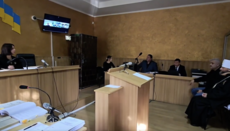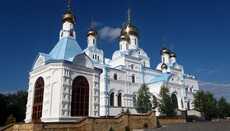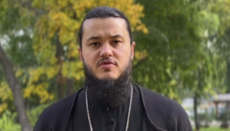Khmelnytskyi Regional Council demands UOC be banned in Ukraine

Khmelnytskyi regional council deputies appealed to the leadership of Ukraine to ban the UOC at the initiative of a representative of the European Solidarity party.
On September 21, 2022, during a regular session of the Khmelnytskyi Regional Council, deputies adopted an appeal to the President of Ukraine, the Verkhovna Rada, the Cabinet of Ministers and the National Security and Defence Council with the request to ban the UOC, reports the website of the Khmelnytskyi Regional Council.
The deputies explained the need to ban the activity of the Ukrainian Orthodox Church by "support for Russian aggression".
In their speeches, the people's deputies stressed that the adoption of this appeal was "extremely important", the prohibition of the UOC’s activity should be regulated at the state level with the mandatory adoption of a corresponding law, with the Ministry of Justice cancelling the statute of the UOC.
The head of the Khmelnytskyi Regional Council, Violetta Labaziuk, called the ban on the UOC "an urgent necessity".
The appeal to ban the UOC was initiated by a European Solidarity member, Alina Koval, who tried to block a religious procession to the Pochayiv Lavra. At the time, she said the procession was "dangerous" because the UOC prays in Russian and does not recognise the OCU. "They (the UOC – Ed.) continue to insist on their canonicality, that the OCU is an impostor church, that they have the right to pray in Russian," Koval said.
The head of the Khmelnytskyi Regional Military Administration, Serhiy Hamaliy, and other officials took part in the meeting of the regional council.
As reported, Khmelnytskyi local authorities initiate the seizure of UOC churches, try to take away land from churches, personally participate in the transfer of UOC communities to the OCU, and the head of the Khmelnytskyi Regional Military Administration Hamaliy received an order from Dumenko.
Earlier, the Ivano-Frankivsk Regional Council urged the Rada to "return to the people" the UOC monasteries.





